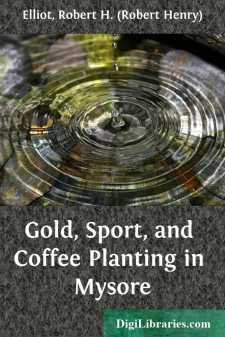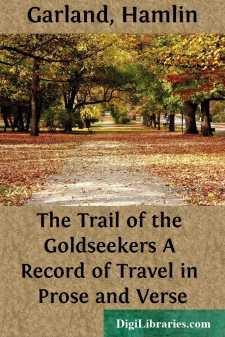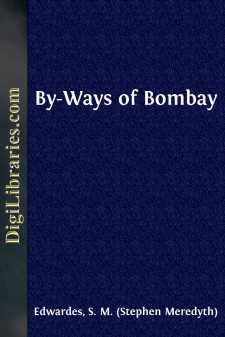Categories
- Antiques & Collectibles 13
- Architecture 36
- Art 48
- Bibles 22
- Biography & Autobiography 813
- Body, Mind & Spirit 142
- Business & Economics 28
- Children's Books 16
- Children's Fiction 13
- Computers 4
- Cooking 94
- Crafts & Hobbies 4
- Drama 346
- Education 46
- Family & Relationships 57
- Fiction 11829
- Games 19
- Gardening 17
- Health & Fitness 34
- History 1377
- House & Home 1
- Humor 147
- Juvenile Fiction 1873
- Juvenile Nonfiction 202
- Language Arts & Disciplines 88
- Law 16
- Literary Collections 686
- Literary Criticism 179
- Mathematics 13
- Medical 41
- Music 40
- Nature 179
- Non-Classifiable 1768
- Performing Arts 7
- Periodicals 1453
- Philosophy 64
- Photography 2
- Poetry 896
- Political Science 203
- Psychology 42
- Reference 154
- Religion 513
- Science 126
- Self-Help 84
- Social Science 81
- Sports & Recreation 34
- Study Aids 3
- Technology & Engineering 59
- Transportation 23
- Travel 463
- True Crime 29
Gold, Sport, and Coffee Planting in Mysore
Categories:
Description:
Excerpt
CHAPTER I.
INTRODUCTORY.—PROGRESS IN MYSORE.
As I now turn my thoughts back to the year 1855, when, being then in my eighteenth year, I sailed for India to seek my fortunes in the jungles of Mysore, it is difficult to believe that the journey is still the same, or that India is still the same country on the shores of which I landed so long ago. But after all, as a matter of fact, the journey is, practically speaking, not the same, and still less is India the same India which I knew in 1855. For the route across Egypt, which was then partly by rail, partly by water, and partly across the desert in transits, the bumping of which I even now distinctly remember, has been exchanged for the Suez Canal, and the frequent steamers with their accelerated rate of speed have altered all the relations of distances, and on landing at Bombay the traveller of 1855 would now find it difficult to recognize the place. For then there were the old fort walls and ditches, and narrow streets filled with a straggling throng of carts and people, while now the fort walls and ditches no longer exist, and the traveller drives into a city with public buildings, broad roads and beautiful squares and gardens, that would do credit to any capital in the world, and sees around him all the signs of advanced and advancing civilization. Then as, perhaps, he views the scene from the Tower of the Elphinstone College, and looks down on the beautiful city, on the masts of the shipping lying in the splendid harbour, and on the moving throngs of people to whom we have given peace and order, what thoughts must fill his mind! And what thoughts further, as on turning to view the scene without the city he sees on one side of it the tall chimneys of the numerous mills which have sprung up in recent times, and which tell of the conjunction of English skill and capital with the cheap hand-labour of the East—a combination that is destined, and at no very distant period ahead, to produce remarkable effects. But I must not wander here into the consideration of matters to which I shall again have occasion to refer when I come to remark on the wonderful progress made in India in recent years owing to the introduction of English skill and capital, and shall now briefly describe my route to the western jungles of Mysore.
When I landed in Bombay, in 1855, the journey to the Native State of Mysore, now so easy and simple, was one requiring much time and no small degree of trouble, for the railway lines had then advanced but little—the first twenty miles in all India having been only opened near Bombay in 1853. A land journey then was not to be thought of, and as there were no coasting-steamers, I was compelled to take a passage in a Patama (native sailing craft) which was proceeding down the western coast with a cargo of salt which was stowed away in the after-part of the vessel. Over this was a low roofed and thatched house, the flooring of which was composed of strips of split bamboo laid upon the salt. On this I placed my mattress and bedding. My provisions for the voyage were very simple—a coop with some fowls, some tea, sugar, cooking utensils, and other small necessaries of life. A Portuguese servant I had hired in Bombay cooked my dinner and looked after me generally. We sailed along the sometimes bare, and occasionally palm-fringed, shores with that indifference to time and progress which is often the despair and not unfrequently the envy of Europeans. The hubble-bubble passed from mouth to mouth, and the crew whiled away the evening hours with their monotonous chants. We always anchored at night; sometimes we stopped for fishing, and once ran into a small bay—one of those charming scenic gems which can only be found in the eastern seas—to land some salt and take in cocoa-nuts and other items. As for the port of Mangalore, for which I was bound, it seemed to be, though only about 450 miles from Bombay, an immense distance away, and practically was nearly as far as Bombay is from Suez. At last, after a nine days' sail, we lay to off the mouth of the harbour into which, for reasons best known to himself, the captain of the craft did not choose to enter, and I was taken ashore in a canoe to be kindly received by the judge of the collectorate of South Kanara, to whom I had a letter of introduction.
After spending some pleasant days at Mangalore I set out for Manjarabad, the talook or county which borders on the South Kanara district—in what is called a manshiel—a kind of open-sided cot slung to a bamboo pole which projects far enough in front and rear to be placed with ease on the shoulders of the bearers....




